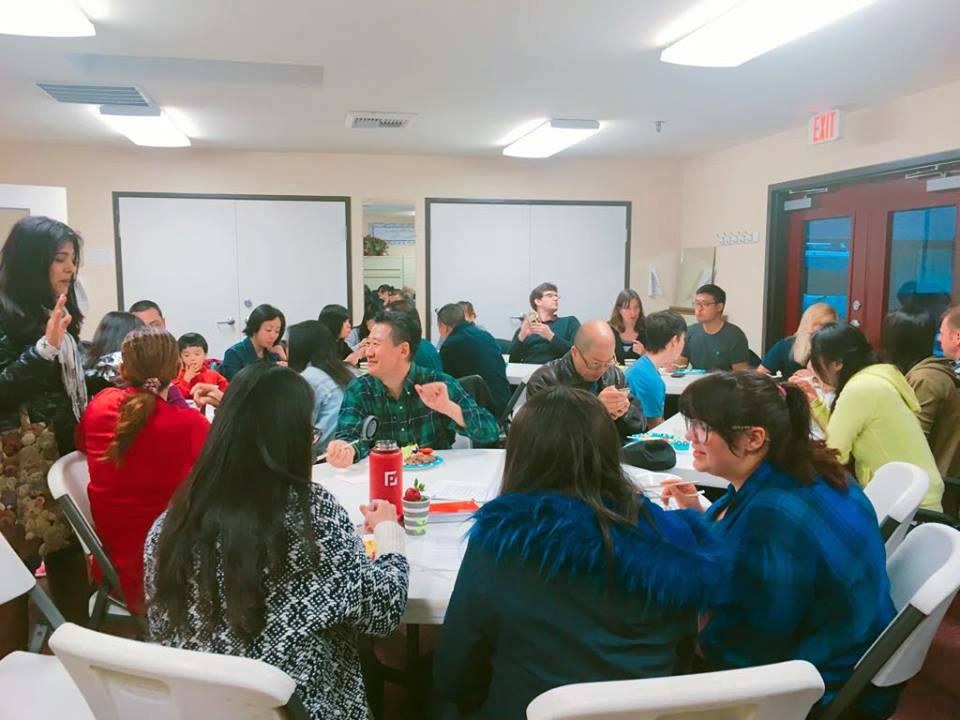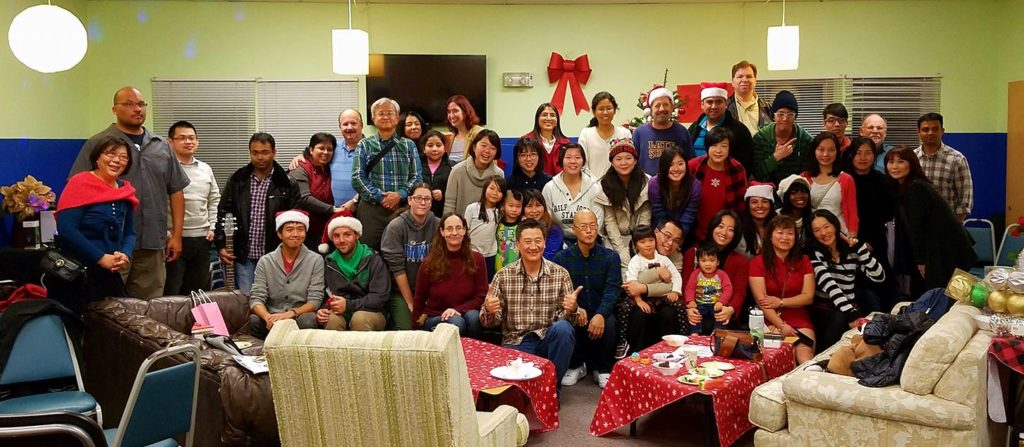Creating Missional Hubs in the Post-Pandemic Era: Transformation of Inherited Churches with Intercultural Mosaics
by Rev. Dr. Stephen Moon
“What you have said in the dark will be heard in the daylight, and what you have whispered in the ear in the inner rooms will be proclaimed from the roofs.” – Luke 12:3
We are living in unprecedented chaotic times. With rising oceans and increasing human tensions, our planet and all we hold dear is in peril. Though there have been crises throughout human history, we now inhabit a time in which the very future of our species and the planet, itself, is in question. Throughout the world, the realities of greed, oppression, hatred, disease and violence have distorted and deformed the natural world and brought untold suffering (physical, mental and spiritual) to the human community. Such pain might lead to despair, but we have reasons for hope. Human beings may have hastened the peril, but we also have the power to heal and shape a just and more peace-filled future.
People under 40, Gen Y-Zers, are hungry for community, belonging and learning. They have a spiritual hunger but are not religious. They reject traditional church. Doctrine, rules, process, pews make them feel trapped. Millennials want to experience God outside of the church box. They want spiritual freedom.
To evangelize Gen Y-Zers, Mosaics began its journey in 2013. The journey focused on intense social media and person-to-person outreach to Millennials.
Mosaics has been providing space, both physical and spiritual, for Gen Y-Zers, and other generations to find authentic fellowship with God and others. We invite Gen Y-Zers through, word-of-mouth, Internet and social media networks—vital products of postmodern technology available at our time to unite and evangelize them effectively. Mosaics fellowship is always filled with love, grace and laughter as most of participants feel each other as their brothers and sisters. Many newcomers feel “belonging” to Mosaics fellowship from day 1 as they find that we are not formed with traditional or systematic ways, but formed organically without any rules or forces, a main reason we grow and attract newcomers every week.
“And afterward, I will pour out my Spirit on all people. Your sons and daughters will prophesy, your old men will dream dreams, your young men will see visions.” – Joel 2:28
Pastor Chris Neufeld-Erdman, Davis Community Church, testifies: “Toward this end, Davis Mosaics, and Pastor Stephen Moon, build bridges, innovate lavishly, meet practical needs, and work cooperatively on behalf of God’s dream for the world’s wellbeing. Its habits of radical hospitality, conscious and intentional pluralism, and the sacramentalism of its way of life—low-bar religiosity and high-bar community—all centered around table fellowship and fostering the common good are a witness to the pathway exemplified by the early Christians who moved souls from belonging into behavioral shifts and lastly toward beliefs. In an age of disaffiliation and non-affiliation with religious institutions, Davis Mosaics, is charting the pathway into the future of Christianity—deeply embodied and incarnational, post-doctrinal, inclusive, experiential, artistic and aesthetic, and sacramental in the truest sense of the world—that is, the gathered community as a sign of God’s dream and intention for the world.”
According to Dr. Klaus Schwab of World Economic Forum, we are living in the Fourth Industrial Revolution (4IR) era since 2015, where AI, nanotechnology, robot technology and internet networks are rapidly evolving and flourishing in the foundation of the digital revolution (1970s – 2000s). The most distinctive character of the 4IR is how ‘most effectively’ people can connect and communicate—creating an “infosphere” in a hyper-connected society.
While Millennials and Gen Zers, are constantly adopting 4IR in their lives and connecting to others globally through various social media hubs, churches have not yet fully revitalized to implement the challenges and opportunities of the 4IR for the evangelism of precious souls of next generations. Schwab predicts that local-based communities will be evaporated and many people will lose the ability to empathize during the 4IR era. Schwab also emphasizes that the main goal of the 4IR is empowering people to improve their quality of life. In 4IR, the society will be more “human-centered,” so that the need of spirituality (work of churches), will be greatly increased and more important than ever. Therefore, we, as churches, need constant innovation of leadership. (*Further reading: “The Fourth Industrial Revolution” by Klaus Schwab, 2017).
This is a critical time, and tipping point that Christians, energetically and innovatively, claim our divine calling—rising to the challenge, rejecting despair and fatalism—and truly seeking the wellbeing of the planet and human beings.
Dr. Michael Beck, in his book, “Deep Roots, Wild Branches: Revitalizing the Church in the Blended Ecology” says that Ezekiel has vision of revitalizing and cultivating new communal ecosystems amidst declining congregations:
“All the trees of the forest will know that I the Lord bring down the tall tree and make the low tree grow tall. I dry up the green tree and make the dry tree flourish.” – Ezekiel 17:24.
According to Beck’s research, there are three possible paths through which an inherited church can experience revitalization: Re-Engineering, Re-Vival, and Re-Missioning. The “Re-Engineering” is about how church can be re-strategized, re-focused, re-organized. The “Re-Vival” is about charismatic movement of the Holy Spirit. The “Re-Missioning” is about how church can re-engage in the Great Commission locally. In “Re-Engineering,” church sets the agenda, whereas, in “Re-Missioning,” the mission context sets agenda.
Beck’s “Blended Ecology” is summarized as “a manifestation of emergence”—synergistic relationships occurring between inherited and emerging modes of church that result in a new complex organism. Revitalization is not the goal, the ultimate goal of inherited church is creating missional ecosystem, and becoming missional hubs to pursue the Great Commission and the Great Commandment of Christ.
“So I prophesied as I was commanded. And as I was prophesying, there was a noise, a rattling sound, and the bones came together, bone to bone. I looked, and tendons and flesh appeared on them and skin covered them, but there was no breath in them. Then the Lord said to me, “Prophesy to the breath; prophesy, son of man, and say to it, ‘This is what the Sovereign Lord says: Come, breath, from the four winds and breathe into these slain, that they may live.’” So I prophesied as he commanded me, and breath entered them; they came to life and stood up on their feet—a vast army. – Ezekiel 37:7-10
If we work together to implement blended ecology in our inherited churches to transform them into missional hubs, our churches will flourish again to glorify God. The vision that Ezekiel saw at the valley of dry bones (Ezek. 37) is our harvest-mission field and all souls reviving will be becoming the body of Christ, churches. We have many valleys of dry bones in our time where many souls can be saved. As we work together, our next generations will receive salvation through the gospel to become armies of Christ—becoming disciples who can make disciples. Ezekiel’s vision is what I witness in our time, and I would like to vision the Intercultural Mosaics to become the ultimate harvesting catalyst to fulfill God’s holy missions. This is God’s perfect will and our faithful act of worship.
God opens up Ezekiel’s perspective to show the fourth dimensional vision that transcends time and space, to transform us in our very critical time. In Ezekiel 36:26-27, God says, “I will give you a new heart and put a new spirit in you; I will remove from you your heart of stone and give you a heart of flesh. And I will put my Spirit in you and move you to follow my decrees and be careful to keep my laws.”
“Therefore, I urge you, brothers and sisters, in view of God’s mercy, to offer your bodies as a living sacrifice, holy and pleasing to God—this is your true and proper worship. Do not conform to the pattern of this world, but be transformed by the renewing of your mind. Then you will be able to test and approve what God’s will is—his good, pleasing and perfect will.” – Romans 12:1-2
Mosaics has been evolving and is at another tipping point to become the “Intercultural Mosaics”—a new missional expression in the Presbyterian Church (USA). Intercultural Mosaics will continually trailblaze new paths of unknown territories in the era of 4IR by implementing the blended ecology into inherited churches. I invite you to pray for Intercultural Mosaics to be used as catalyst to mobilize Millennials and Gen Zers to carry out the new dream of God—creating spiritual ecosystem and missional hubs—together with inherited churches and the Presbytery so that there will be many fruits in the dynamic of life-giving exchange.
Although Mosaics started with a vision to restore the 1st century koinonia, gathering around tables since 2013 to effectively reach out Gen Y-Zers, it has been also constantly evolving for the past 7 years to become an intercultural catalyst for the 21st century diakonia, for all generations, inclusively. Mosaics will continue breaking boundaries and barriers of all kinds, not only to transform inherited churches, but also to expand territories of intercultural ministries, missions and evangelism outside of the box to reach out unreached people ultimately (Luke 10:2).
Mosaics New Missions:
1) Continue growing a learning, caring, transforming, spiritual community with “koinonia” to disciple Millennials and Gen Zers for the 21st century ministries (Mosaics original mission).
2) Creating missional ecosystem in inherited churches to become missional hubs for intercultural people (Ezekiel’s vision).
3) Breaking boundaries to expand territories of intercultural ministries for local and worldwide evangelism (Jabez’s prayer).
Jabez cried out to the God of Israel, “Oh, that you would bless me and enlarge my territory! Let your hand be with me, and keep me from harm so that I will be free from pain.” And God granted his request. – 1 Chr. 4:10
To revitalize our churches in the PC(USA), I would like to invite all of you to take following actions in faith and love.
1. Pursuit of Matthew 25 Vision: Act boldly and compassionately to serve people who are hungry, oppressed, imprisoned or poor; fighting for racial justice, protecting immigrants and liberating of oppressed people; expand local and global missions (Isaiah 1:17; Luke 4:18-19; Romans 12:1-2; Gal 3:28).
2. Expansion of Intercultural Ministries for the Next Generation: equip and fund leaders; make intercultural ethnic ministries part of the “New Ministry Initiatives” or form of a new experimental committee to expand emerging intercultural ministries; promote diversity while having unity in Christ (Isaiah 56:6-8; Matt. 28:18-20; Eph. 4:12; Rev. 5:9-10).
3. Transformation of Presbyteries: restore trust and relationship; repent of our ignorance of ethnic churches and leaders; heal and empower servant leaders in the ethnic ministries; send countercultural Millennials as delegates to committees; prepare our minds for action, and being sober-minded, set our hope fully on the grace of God (Jonah 3:5-10; Col. 1;20; 1 Peter 1:13; 2 Tim. 4:5).
4. Proactive Leadership for Post-Pandemic Ministries: restore broken churches and leaders; prepare hybrid worship and ministries by upgrading to up-to-date technology; create missional hubs (“blended ecology”) in larger inherited churches in the Presbyterian Church (USA) (Ezek. 17:24 & 37:7-10; Romans 8:28 & 11:24; Rev. 22:2).
Rise up; this matter is in your hands. We will support you, so take courage and do it. – Ezra 10:4
_______
I give special thanks to our partnering church, Davis Community Church, and Pastor Chris Neufeld-Erdman for their unstoppable love, support and prayers!














